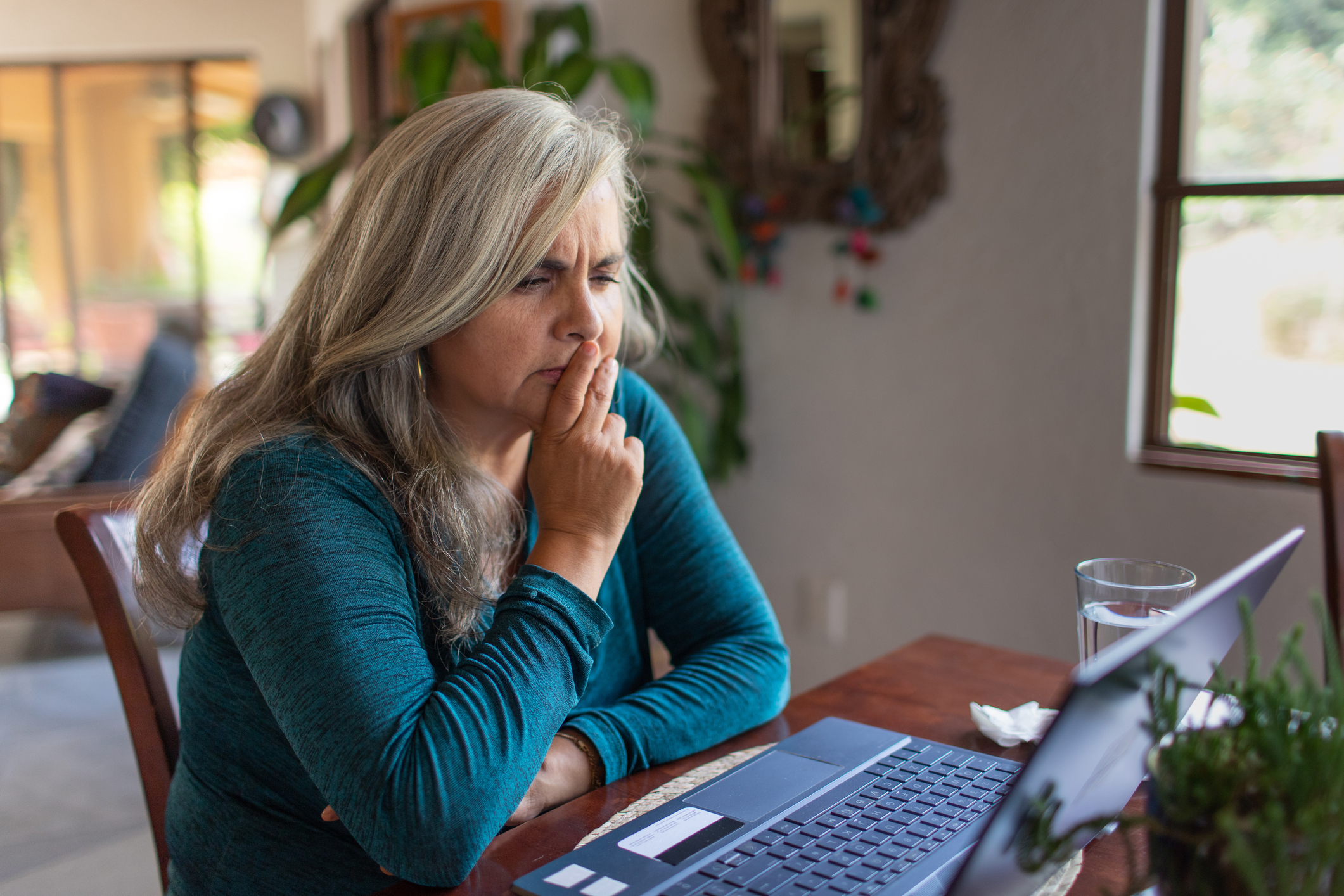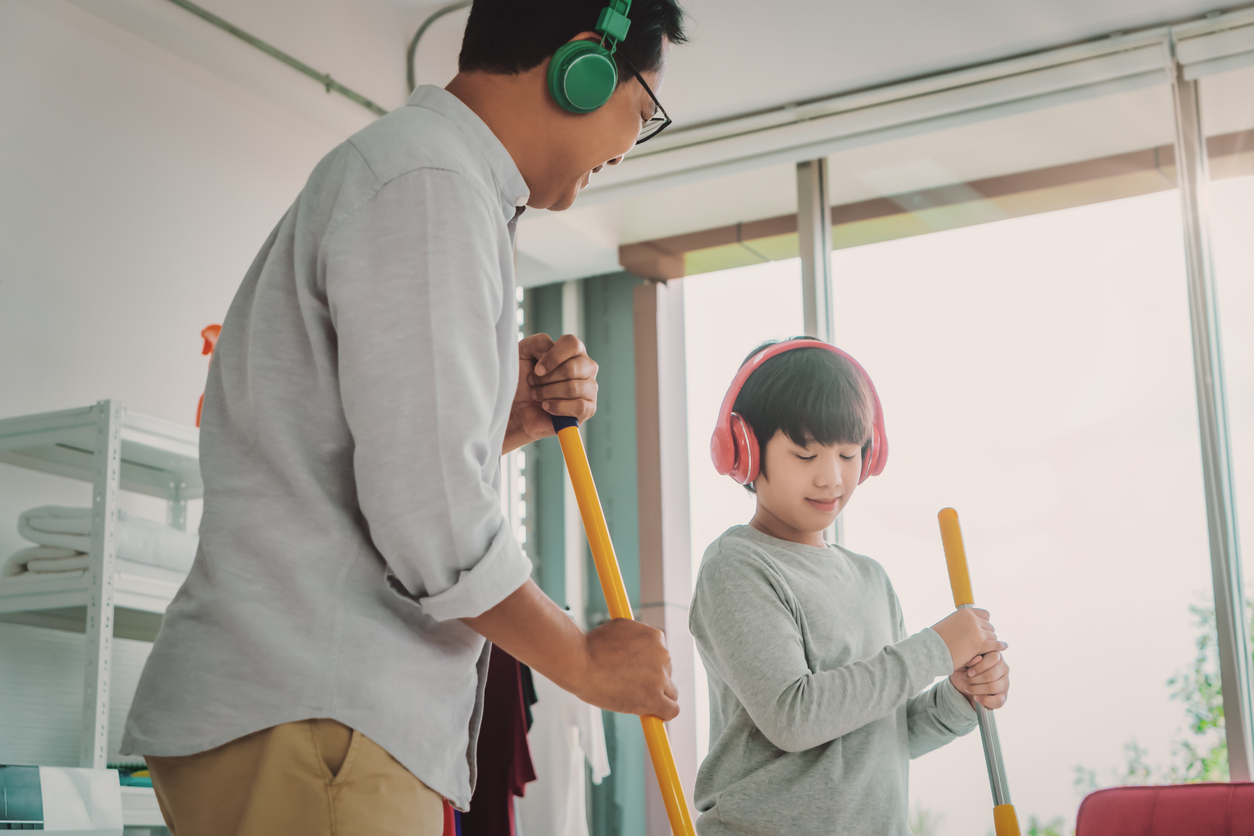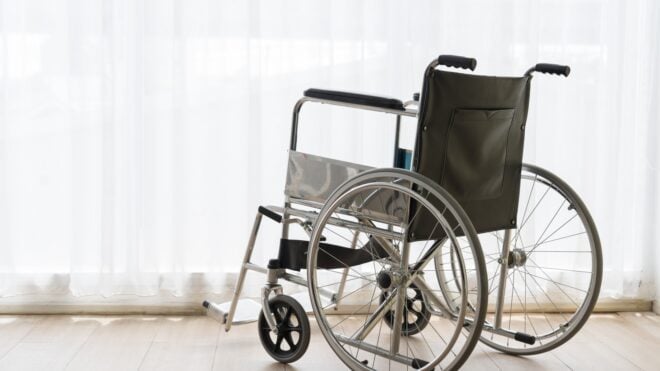
The daily grind can drag you down in ways that you'd never thought possible. No matter what time of year we’re in or what’s on the calendar for the family, there always seems to be a list of things a mile long that not only needs to get done but is continually being added to by ourselves, the kids, our significant other, or friend group.
When you’re feeling stressed, anxious, or even depressed, and just trying to make it through your day, all of the little ways that you connect with the world around you to how you manage your time and inhabit a space can all have an impact on your mental health.
Think about it for a moment. If you’re feeling extra drained or like your brain simply can’t take on another task without starting to feel your heart beat out of your chest or those other dizzying physical symptoms that often come with anxiety, how does anything in your daily life — from work stuff to truly being there for your kids — get done?
More from LittleThings: How To Spot The Lesser Known Signs Of Depression In Children
If you’re looking to see some real change in how your daily life looks and, more importantly, how you can implement some small but doable daily habits that can positively impact your mental health, keep reading.
Don’t immediately pick up your phone in the morning. Try to make a conscious effort to reduce your screen time overall.

How many times have you been lying in bed and had an extra few moments to yourself and the first thing you do is pick up your cellphone and start scrolling? It’s such an easy and habitual thing to do, but all of that scrolling, especially from the moment that you wake up, really doesn’t do much to contribute to a positive mindset and mental well-being.
Participaction.com notes that by constantly being on our phones, we’re missing out on “real-life engagement” and likely find ourselves tuning out of conversations or getting distracted while trying to complete daily tasks, which can leave us feeling disconnected and stressed out.
The nonprofit health organization suggests trying to consciously set aside some time daily or even weekly when your phone is completely put away, because you just might find yourself feeling renewed and reconnected with not only your thoughts and emotions but the people around you.
Be mindful about how you get things done and do away with constantly multitasking.

Whoever invented multitasking and bragged about how great it is might need to rethink some things. Even though multitasking works for some people to help them get stuff done at an accelerated rate, it can actually have the opposite effect for a lot of people.
Time.com notes that even though some people believe they’re being “more productive by multitasking,” it can often leave them feeling stressed out, which can add to the layers of anxiety or depression someone might feel when there’s already a lot of things going on in their life and their mental health is being negatively impacted.
A small habit that can help improve your state of mind is simply taking a deep breath and focusing on the task at hand and making your way through it, even if it’s at a slower pace. It sounds so simple, but when you try to alleviate some of that outside noise that can almost feel like a static television set constantly buzzing in your ear, it frees your mind up to focus on what you need to concentrate on at that moment. Then you can move onto the next task while actually feeling accomplished and centered.
Don’t skip meals or snacks and keep a bottle of water with you throughout the day to stay hydrated.

CNET.com notes the important link between mental health and physical health. For you to flourish in your day-to-day life, it’s vital to make an effort in terms of the nutritional intake and how much water you’re drinking.
The media outlet notes that a healthy and diverse diet not only makes your body feel replenished and better fueled to take on the day but when you’re drinking enough water, there’s less of a risk that you’ll start to feel depressed or anxious.
So, make it a daily habit to fill up your water bottle every single morning and start drinking. If it helps you stay on a better track with your eating and meals, do a bit of meal prep on the weekends to ensure you have some ready-made meals and snacks already in the fridge for when you need some food.
Make an effort to connect and talk to a friend at least once a day.

Have you ever had one of those really long and difficult weeks and then had a nice dinner out with a friend and you can feel the weight of the world suddenly lift off your shoulders? Well, that’s because taking the time to connect with a loved one or friend can intrinsically feed us from the outside in.
Psychology Today explains that studies have shown that social connections are a useful tool that can help relieve stress and diminish those pent-up feelings of depression that often come around when we’re feeling isolated or lonely.
The publication suggests that if you pause to think about the friends or extended family members that make you feel good and help give you a “sense of belonging,” you’ll start to see who you should reach out to and spend more time with. And it’s OK if you only have 10 to 15 minutes each day to shoot off a text to make plans or make a phone call to a friend, because those strong friendship connections can help pull us through hard times.
Dedicate 20 to 30 minutes to some kind of movement each day.

Have you ever had those weeks or months where you’ve skipped out on your daily walks or workouts due to a hectic schedule and then when you finally got back on track with your fitness goals, you actually started to feel better? Yeah, it’s pretty annoying how that’s usually the case.
Not only does daily movement help get the blood flowing and may help prevent heart disease and even some cancers, but exercise can also help boost your mood and alleviate stress. If it’s hard to dedicate an hour each day to get to the gym, you could always head outside with the kids and ride bikes or pack a snack and go for a nice hike. Try to introduce some variety to how you move your body each day and it’s likely to turn into a fun habit that you look forward to, rather than one that feels like a chore.
Learn to listen to yourself and your own needs and also make a concerted effort to really listen to those around you.

How many arguments and uncomfortable misunderstandings with partners, work colleagues, or even your kids have stemmed from plain old miscommunication? According to Forbes, “effective communication is crucial when it comes to cultivating personal and professional relationships,” and productive listening skills are at the core of that.
It may seem like an odd daily habit to try to adopt, but when you take the time to really listen to those around you — whether that means consciously putting an end to piping in with a relatable story about yourself while they’re still speaking or putting down your phone and giving the person your undivided attention — you may find yourself less stressed to discuss a heavy topic with your spouse or go into a hectic work week with a difficult colleague because when you listen more, you’re inevitably understanding more.
A clear mind is often helped by a clean space, so do a 10-minute reset before bed every night.

Some nights you are simply going to have to leave some dishes in the sink or a pile of laundry in the basket to fold the next day, and that’s completely fine because there are only so many hours in a day and every day is different. Most of the time though, we have those extra 10 minutes that we probably would have spent scrolling on our phone.
If you often find yourself distracted in bed at night or stressing out about your overwhelming list of things to do around the house — whether it’s sorting all the shoes in the entryway or putting the clean towels away — if you dedicate those 10 to 15 minutes to reset your space and get some of those crucial tasks and daily chores out of the way, it’s more likely that you’ll go to bed each night with a clearer mind and wake up feeling less stressed.
Have a book that you’re excited to read on the go to help engage your mind.

Are you someone who consistently has a pile of books sitting on your bedside table but you never really dedicate any time to reading them? Just like anything else that’s good for you — even if it seems like something you’d want to do such as recreational reading — if you try and make it a daily habit that you set aside time for and look forward to, it’s more likely to happen and keep happening.
More from LittleThings: How To Have Deeper Conversations With Your Teen To Help Build Healthy Communication
Nuvancehealth.org explains that reading enhances brain activity, memory, and creativity, and also benefits your mental health. The health organization explains that books often take readers on an emotional journey that helps the reader connect with different perspectives and unique experiences. Besides often giving an empathetic point of view, some people also find stepping into a different world for a little while stress-reducing and a nice escape for the mind from everyday life. Even if it’s just 15 to 20 minutes before bed, your brain will likely thank you for making reading a daily habit.
Create a relaxing bedtime routine that sets you up for a good night’s sleep.

Think back to when your kids were really little and you depended on a solid bedtime routine that would help them get in bed at a decent hour each night and achieve a good night’s rest. Who’s saying we stop needing that bedtime routine as adults?
HuffPost explains that stress and anxiety can often be linked to poor sleep, so it’s really important to take the time each evening to relax and unwind. Whether that’s having a bubble bath followed by a meditative skin care routine that also bumps up your self-care quotient for the day or spending 20 to 30 minutes in bed reading a book with a cup of tea. However you choose to unwind at night, be sure that it’s as stress-free as possible and it leaves you feeling relaxed and ready for at least eight hours of quality sleep.







